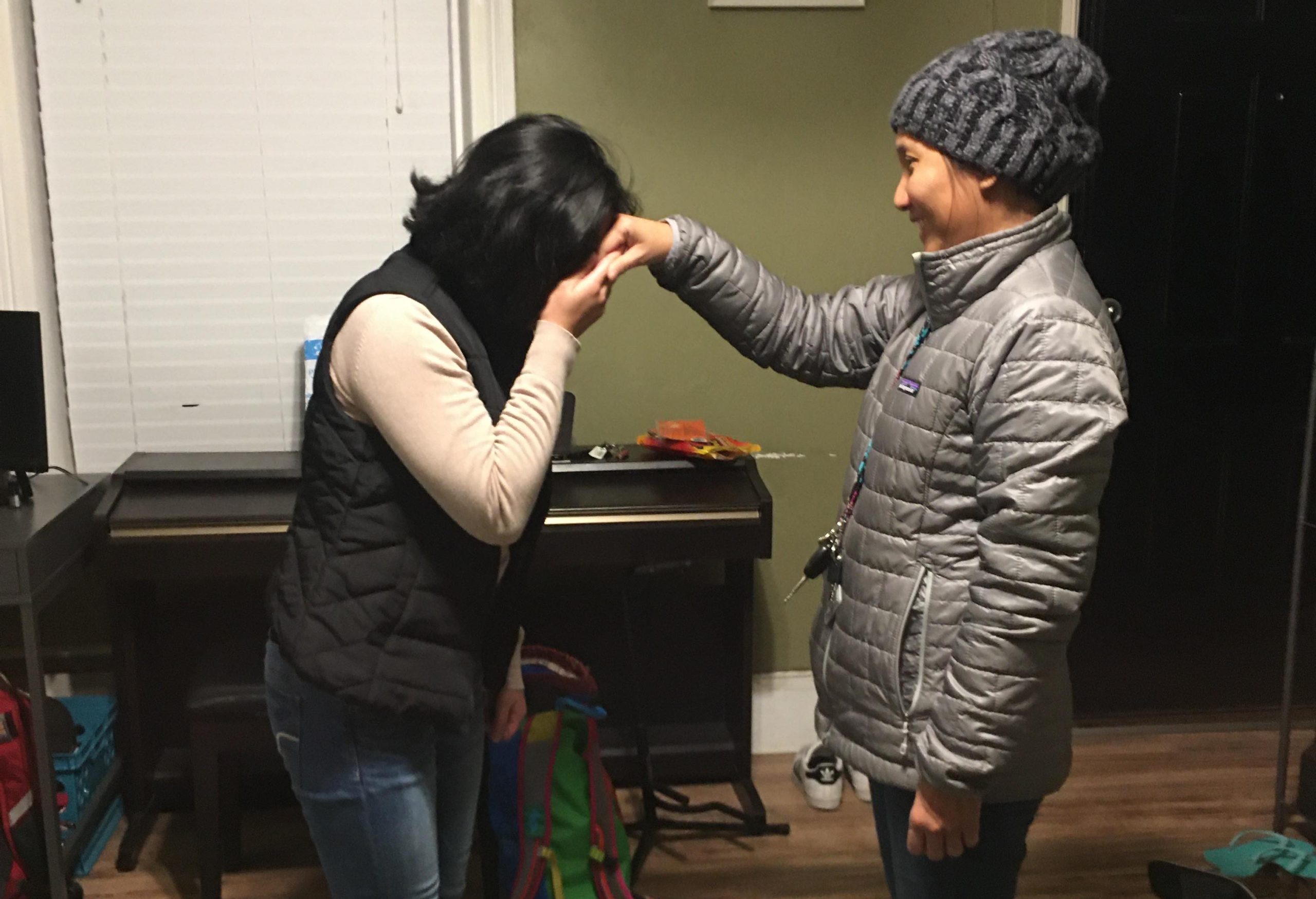As we walk down the road, we see the old man sitting on his porch, possibly just there for the view, possibly there waiting for us. As we cross the threshold to his property, we say hello to him, calling out: “Tay!” Dad! We ask him how he’s doing.
The thing is, he’s definitely not our dad; he’s just a friend. We finally reach his porch, and in turn we take his hand in ours, bow our heads, and press our foreheads against the back of his hand in greeting.
 The Filipino people have carried on this traditional gesture as a respect to elders for centuries. It’s called mano, the Spanish word for “hand.” However, sometimes they’ll simply call it “bless,” using English, because when someone does the mano to an elder, they are asking for blessings. As the elder allows the gesture to be done to them, they freely and lovingly bestow blessings on the givers.
The Filipino people have carried on this traditional gesture as a respect to elders for centuries. It’s called mano, the Spanish word for “hand.” However, sometimes they’ll simply call it “bless,” using English, because when someone does the mano to an elder, they are asking for blessings. As the elder allows the gesture to be done to them, they freely and lovingly bestow blessings on the givers.
When I lived in the Philippines, parents would often tell their young children to “bless” me and my colleagues, whether those colleagues were foreign like me or not. Though no one ever explicitly told me, I noticed teenagers and adults who lived at home would do the mano to their parents or grandparents upon entry into the house.
The nanays and tatays (literally, “moms” and “dads,” but these terms are used for the elderly as well) were often outside, whether walking somewhere on an errand, or taking a rest like the tatay I was so fond of visiting. And they were all worthy of receiving the mano from anyone who spoke with them.
That’s one of the perks of living somewhere for a long time: getting to know little beautiful details like this from another culture, getting to practice it yourself, and getting to make new friends.
Filipinos show their friendly, familial love in a lot of ways, but one of the most remarkable to me is the simple but meaningful gesture of respect that the mano is.
 When you travel to the Philippines, don’t be shy about talking to the locals. They’re very good at English, and they’ll be excited to see you and practice speaking like you. Practice speaking back to them, even if you don’t use any Filipino words. They’ll be filled with joy when you reach for their hand and press your forehead against it. You won’t be just a tourist then.
When you travel to the Philippines, don’t be shy about talking to the locals. They’re very good at English, and they’ll be excited to see you and practice speaking like you. Practice speaking back to them, even if you don’t use any Filipino words. They’ll be filled with joy when you reach for their hand and press your forehead against it. You won’t be just a tourist then.
—Laura Combrink

